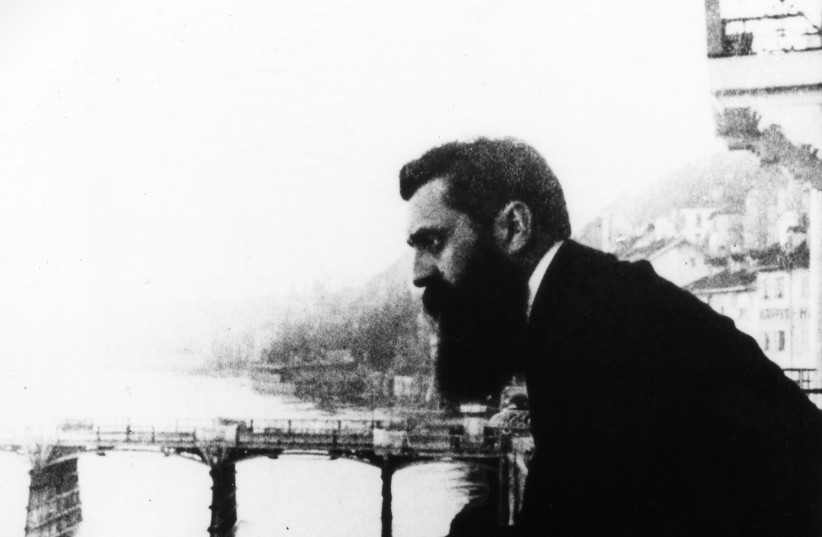Is knowledge acquired? The Book of Deuteronomy seems to suggest that knowledge is already there, but we fail to recognize it due to a state of enslavement – nationally or personally. Hence a process is needed to train our hearts, eyes and ears. This is the process of receiving the Torah.
That explains the seemingly contradictory duality of Moses’s message. On the one hand, he reminds the Israelites that they have witnessed God’s miracles and wonders, but on the other, he also reminds them that they have failed to translate this into consciousness, as they repeatedly seek to go back to Egypt, worship idols and disobey God’s orders.
Moses reconciles this duality in his final days, explaining: “But the Lord has not given you a heart to know, eyes to see and ears to hear, until this day.”
Now that the 40-year dis-enslavement process has been completed, the day has arrived for God to fulfill what would later be described in Psalms: “Unveil my eyes, and I shall see the wonders of your Torah.”
More than 3,000 years later, poet Leah Goldberg, who appears on the Jewish state’s NIS 100 bill, wrote about the near-utopic state of her beloved country, but implied that it is not recognized: “Who has eagle eyes to see? Who has a wise heart to acknowledge?”
Indeed, just like our eyes can be unveiled, they can be re-veiled. That is exactly what happened in the time between Moses and Goldberg. Over a 1,000 years of flourishing (Judaism 1.0), were followed by some 2,000 years of re-enslavement (Judaism 2.0). “Once again there was an Egypt,” Herzl explained in Altneuland, suggesting we should include the exodus from Europe in the Passover Seder. During these centuries of exile, knowledge was dormant.
Failing to see what is in-front of us also exists on a personal level (some interpret Goldberg’s poem as an analogy to her personal life). Sadness, tiredness, regret and lack of inspiration blocks, while a state of calmness, happiness, optimism and acceptance, as well as security, allows our eyes to be unveiled and to see the wonders.


Such was Herzl’s personal circumstances in Paris. At first, it was riddled with noise. He lived with his parents, young children and his demanding wife, who was in repeated conflict with his parents. But then ahead of his own return to Vienna, his family moved back, and Herzl was left to his own devices in the city of lights. Secured in the reassuring knowledge that his family was safe in Vienna, Herzl flourished in the spring of 1895 – intellectualizing with the Paris elite, frequenting the opera and breathing the optimism of the belle epoque. (Herzl’s personal circumstances are reminiscent of Moses’s at the time of his flourishing.) Herzl’s heart suddenly knew, his eyes saw and his ears heard.
“No portion of my argument is based on a new discovery,” Herzl proclaimed right in the first paragraph of his manifesto The Jewish State. “The materials of the structure I am designing are not only in existence, but actually already in hand.”
Internalizing the lessons from Moses’s exodus, Herzl understood that transformations need to happen gradually – he referred to those 40 years in the desert as “education through migration.” Yet, he also acknowledged that “a state of awareness can only shape inside of us by the death of the individual that we were yesterday.”
Judaism 3.0
Between those two back-ends, a transformation of Judaism was embarked upon. By now, this transformation is becoming evident. Zionism is turning into the organizing principle of Judaism and the primary conduit through which both Jews and non-Jews relate to Judaism – in positive and negative alike.
This is a direct continuation of Moses’s final words in Deuteronomy. Just as he prophesied, God has gathered the Israeli nation from the dispersed nations and circumcised their hearts to love God (reflected in Israel being a nation of believers – secular and religious alike). The “terms” for the credit given by God is described in Parashat Nitsavim, including the tough sanctions if we default. Indeed, one can look at Nitzavim as “terms and conditions” for today’s state of Judaism.
The transformation of Judaism is on the one hand obvious, but on the other, yet to be recognized. Some still think that Judaism can exist today without Zionism. This is as laughable as the idea that Judaism can exist without its previous organizing principle – Rabbinic Judaism, and instead rely on nostalgia to the Temple and ritual of the sacrifices.
And yet, it is hard to let go of the Diaspora way of thinking – 2,000 years of Egypt takes its toll. While most Jews transformed, some still suffer from instinctive Pavlovian-like opposition to Zionism. Herzl described them in harsh terms in his play The New Ghetto, and his article “Mauschel.”
The addiction to the familiar enslaved state of being is depicted in another one of Goldberg’s songs, “My homeland.” Even though characterized with poverty, hunger, year-round rain and greyness, Goldberg’s praise to her old country is remarkably strong. But then Goldberg engages in what seems to be a farewell tour of her beloved life of yesterday, traveling from city to city, from state to state, with a song and music-box, “to eulogize your glamorous Scarcity.” ■
======
The root of our souls
A careful, layered read of Herzl unveils the interplay between two bookends of his thinking: “A state of awareness can only shape inside of us by the death of the individual that we were yesterday” on the one hand, and the need for transformations to be gradual, on the other.
The same can be said about a layered reading of the Torah – between a radical negation of Egypt and its “idols, wood and stone, silver and gold” on the one hand, and the need for a gradual transition (hence the 40 years in the desert), and for physical tools to worship God.
As we are about to start a new year, the same can be said about our individual and collective process of teshuva – the return to our authentic self, to the root of our souls – as Rabbi Abraham Isaac Kook described it.
A young person getting married can perhaps part from his single days through a gradual transition, but an older bachelor might require some destruction of the individual he was yesterday in order to make room for the new state of awareness.
Israel is not a young nation. It has a rigid past that took it far away from its authentic self. As Herzl said “we are what the Ghetto made us.” Hence a radical transformation was needed, and that is exactly what Zionism is. Those who have yet to recognize that Judaism has transformed and Zionism is its anchor, can perhaps do so in the upcoming year. Indeed, as the old year ends, we are ready to welcome this new year in Zion, along with all its blessings.
The writer is the author of the upcoming book Judaism 3.0 – Judaism’s transformation to Zionism (October 2021). For details: Judaism-Zionism.com. For more of his parasha commentary: parashaandherzl.com
